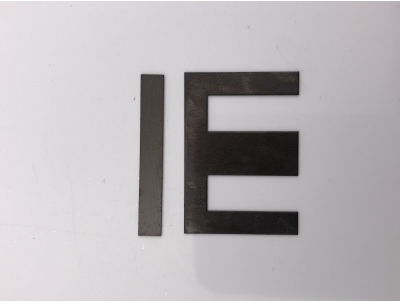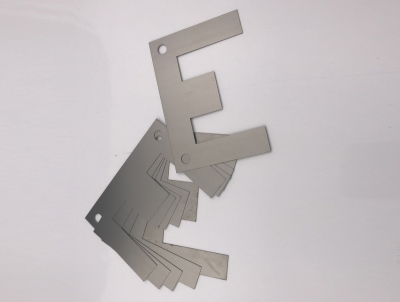
Kakšna je gostota, modul elastičnosti in Poissonovo razmerje silicijevih jeklenih plošč
The density of silicon steel wafers usually ranges from 6.2 to 7.65 g/cm³, the exact value being influenced by the composition of the wafers and the production process. Its modulus of elasticity is generally 160-200 GPa, indicating the ability of the material to resist deformation. Poisson’s ratio is about 0.3, reflecting the relationship between transverse and longitudinal strain when the material is subjected to force.

As an important electrotechnical material, the physical properties of silicon steel sheet have an important impact on the performance and efficiency of electric equipment. Among them, density, modulus of elasticity and Poisson’s ratio are the key parameters for evaluating the performance of silicon steel sheet.
First, the density of silicon steel sheet
The density of silicon steel sheet refers to the mass of silicon steel sheet contained in the unit volume. According to professional data sources, the density of silicon steel wafers is usually between 6.2 and 7.65g/cm³. The exact value can be affected by factors such as the composition of the silicon steel sheet, the production process and the heat treatment. For example, aluminum silicon steel wafers may have a high density, while copper silicon steel wafers may have a low density. The difference in density not only reflects the quality and composition of silicon steel sheet, but also has an impact on its application performance in electric power equipment.
Second, the modulus of elasticity of silicon steel sheet
Modulus of elasticity is a physical measure of a material’s ability to resist elastic deformation. For silicon steel sheet, its modulus of elasticity is usually between 160-200GPa. This means that when subjected to external forces, the silicon steel sheet is able to maintain its original shape and is less prone to deformation. The high modulus of elasticity makes silicon steel sheet have good stability and durability in electric equipment such as motors and transformers. At the same time, the size of the modulus of elasticity also directly affects the silicon steel sheet in the process of stress distribution and mechanical properties.
Third, silicon steel sheet Poisson’s ratio
Poisson’s ratio is a physical quantity that describes the relationship between transverse strain and longitudinal strain when the material is subjected to force. For silicon steel sheet, its Poisson’s ratio is about 0.3, which means that when the silicon steel sheet in a certain direction by tensile or compression, its in the perpendicular direction of the strain will be relatively small. This characteristic enables the silicon steel sheet to maintain good dimensional stability and mechanical properties when subjected to complex stress states. The size of Poisson’s ratio has an important influence on the performance and stability of silicon steel sheet in mechanical mechanics.
In summary, the density, modulus of elasticity and Poisson’s ratio of silicon steel sheet are important indicators for evaluating its performance. These parameters not only reflect the physical properties of silicon steel sheet, but also directly affect its application effect in power equipment. Therefore, when purchasing and using silicon steel sheets, these parameters should be fully considered to meet the actual needs.
